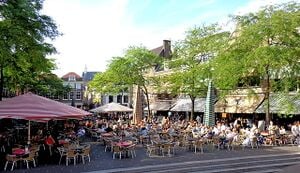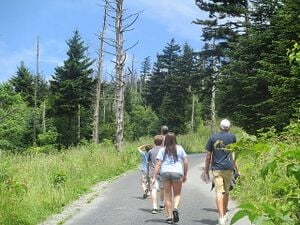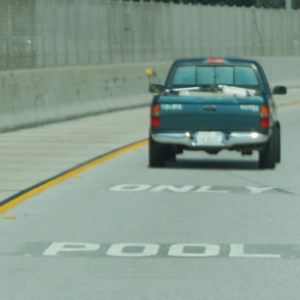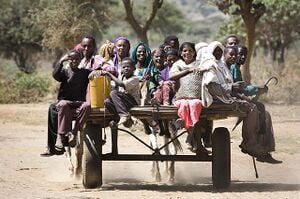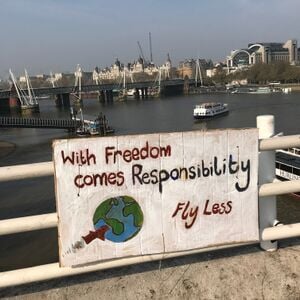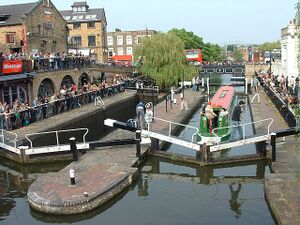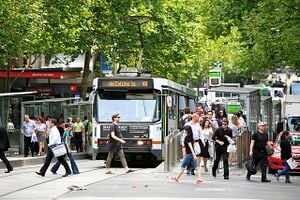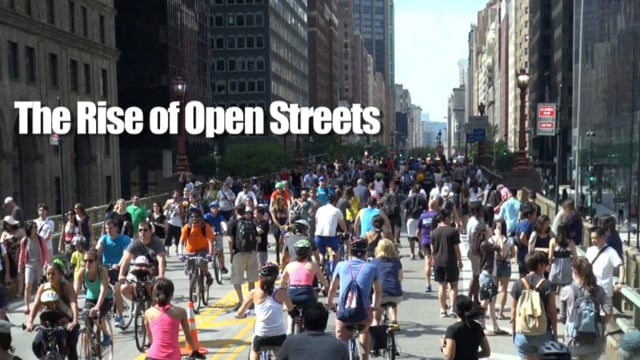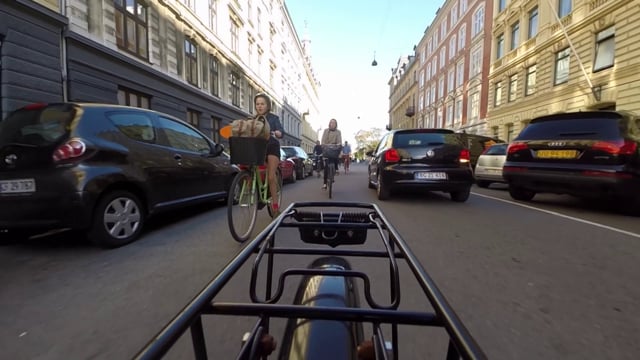Loading map...
{"format":"leaflet","minzoom":false,"maxzoom":false,"limit":99999,"offset":0,"link":"all","sort":[""],"order":[],"headers":"show","mainlabel":"","intro":"","outro":"","searchlabel":"\u003Cspan class=\"mw-ui-button\" style=\"margin: .5em 0;\"\u003EMore results\u003C/span\u003E","default":"","import-annotation":false,"width":"auto","height":"350px","centre":false,"title":"","label":"","icon":"","lines":[],"polygons":[],"circles":[],"rectangles":[],"copycoords":false,"static":false,"zoom":false,"defzoom":14,"layers":["OpenStreetMap"],"image layers":[],"overlays":[],"resizable":false,"fullscreen":false,"scrollwheelzoom":true,"cluster":true,"clustermaxzoom":20,"clusterzoomonclick":true,"clustermaxradius":80,"clusterspiderfy":true,"geojson":"","clicktarget":"","showtitle":true,"hidenamespace":true,"template":"","userparam":"","activeicon":"","pagelabel":false,"ajaxcoordproperty":"","ajaxquery":"","locations":[{"text":"\u003Cb\u003E\u003Ca href=\"/3D_printed_bike_pedal\" title=\"3D printed bike pedal\"\u003E3D printed bike pedal\u003C/a\u003E\u003C/b\u003E","title":"3D printed bike pedal","link":"","lat":46.8591277777779993130025104619562625885009765625,"lon":-88.77747222222200207397690974175930023193359375,"icon":""},{"text":"\u003Cb\u003E\u003Ca href=\"/535_DCH_DIY_air_filter\" title=\"535 DCH DIY air filter\"\u003E535 DCH DIY air filter\u003C/a\u003E\u003C/b\u003E","title":"535 DCH DIY air filter","link":"","lat":40.86651666666700322139149648137390613555908203125,"lon":-124.082838888889995132558397017419338226318359375,"icon":""},{"text":"\u003Cb\u003E\u003Ca href=\"/535_FiltAirs_DIY_air_filter\" title=\"535 FiltAirs DIY air filter\"\u003E535 FiltAirs DIY air filter\u003C/a\u003E\u003C/b\u003E","title":"535 FiltAirs DIY air filter","link":"","lat":40.5997416666670005724881775677204132080078125,"lon":-123.8997722222199939778874977491796016693115234375,"icon":""},{"text":"\u003Cb\u003E\u003Ca href=\"/A_First_Investigation_of_Agriculture_Sector_Perspectives_on_the_Opportunities_and_Barriers_for_Agrivoltaics\" title=\"A First Investigation of Agriculture Sector Perspectives on the Opportunities and Barriers for Agrivoltaics\"\u003EA First Investigation of Agriculture Sector Perspectives on the Opportunities and Barriers for Agrivoltaics\u003C/a\u003E\u003C/b\u003E","title":"A First Investigation of Agriculture Sector Perspectives on the Opportunities and Barriers for Agrivoltaics","link":"","lat":43.621194444444000737348687835037708282470703125,"lon":-84.68243333333299460718990303575992584228515625,"icon":""},{"text":"\u003Cb\u003E\u003Ca href=\"/A_transition_from_ArcGIS_to_open_source_GIS_softwares\" title=\"A transition from ArcGIS to open source GIS softwares\"\u003EA transition from ArcGIS to open source GIS softwares\u003C/a\u003E\u003C/b\u003E","title":"A transition from ArcGIS to open source GIS softwares","link":"","lat":44.230686111110998126605409197509288787841796875,"lon":-76.4813222222220048251983826048672199249267578125,"icon":""},{"text":"\u003Cb\u003E\u003Ca href=\"/ACROS_Fukuoka_building\" title=\"ACROS Fukuoka building\"\u003EACROS Fukuoka building\u003C/a\u003E\u003C/b\u003E","title":"ACROS Fukuoka building","link":"","lat":33.625124999999997044142219237983226776123046875,"lon":130.618002777779992129580932669341564178466796875,"icon":""},{"text":"\u003Cb\u003E\u003Ca href=\"/Additional_Services_Provided_by_Solar_PV_Systems:_A_review\" title=\"Additional Services Provided by Solar PV Systems: A review\"\u003EAdditional Services Provided by Solar PV Systems: A review\u003C/a\u003E\u003C/b\u003E","title":"Additional Services Provided by Solar PV Systems: A review","link":"","lat":42.983241666666998526125098578631877899169921875,"lon":-81.243372222222006939773564226925373077392578125,"icon":""},{"text":"\u003Cb\u003E\u003Ca href=\"/Aerial_Ropeways_in_Nepal\" title=\"Aerial Ropeways in Nepal\"\u003EAerial Ropeways in Nepal\u003C/a\u003E\u003C/b\u003E","title":"Aerial Ropeways in Nepal","link":"","lat":28.108391666666999952894911984913051128387451171875,"lon":84.0917138888890036696466268040239810943603515625,"icon":""},{"text":"\u003Cb\u003E\u003Ca href=\"/Alternative_Technology_Association\" title=\"Alternative Technology Association\"\u003EAlternative Technology Association\u003C/a\u003E\u003C/b\u003E","title":"Alternative Technology Association","link":"","lat":-37.81424444444400023712660185992717742919921875,"lon":144.963172222220009643933735787868499755859375,"icon":""},{"text":"\u003Cb\u003E\u003Ca href=\"/An_Affordable_Window_Greenhouse_in_Kingston,_Ontario\" title=\"An Affordable Window Greenhouse in Kingston, Ontario\"\u003EAn Affordable Window Greenhouse in Kingston, Ontario\u003C/a\u003E\u003C/b\u003E","title":"An Affordable Window Greenhouse in Kingston, Ontario","link":"","lat":44.230686111110998126605409197509288787841796875,"lon":-76.4813222222220048251983826048672199249267578125,"icon":""},{"text":"\u003Cb\u003E\u003Ca href=\"/An_open_source_simulation_of_photovoltaic_yield_with_r.sun_over_large_regions\" title=\"An open source simulation of photovoltaic yield with r.sun over large regions\"\u003EAn open source simulation of photovoltaic yield with r.sun over large regions\u003C/a\u003E\u003C/b\u003E","title":"An open source simulation of photovoltaic yield with r.sun over large regions","link":"","lat":44.230686111110998126605409197509288787841796875,"lon":-76.4813222222220048251983826048672199249267578125,"icon":""},{"text":"\u003Cb\u003E\u003Ca href=\"/Appropriate_Technology_Sourcebook/Biogas_Systems_in_India\" title=\"Appropriate Technology Sourcebook/Biogas Systems in India\"\u003EAppropriate Technology Sourcebook/Biogas Systems in India\u003C/a\u003E\u003C/b\u003E","title":"Appropriate Technology Sourcebook/Biogas Systems in India","link":"","lat":22.351113888888999525761391851119697093963623046875,"lon":78.6677416666669984124382608570158481597900390625,"icon":""},{"text":"\u003Cb\u003E\u003Ca href=\"/Appropriate_Technology_Sourcebook/Freshwater_Fisheries_and_Aquaculture_in_China\" title=\"Appropriate Technology Sourcebook/Freshwater Fisheries and Aquaculture in China\"\u003EAppropriate Technology Sourcebook/Freshwater Fisheries and Aquaculture in China\u003C/a\u003E\u003C/b\u003E","title":"Appropriate Technology Sourcebook/Freshwater Fisheries and Aquaculture in China","link":"","lat":35.00007500000000248974174610339105129241943359375,"lon":104.9999277777800017474874039180576801300048828125,"icon":""},{"text":"\u003Cb\u003E\u003Ca href=\"/Appropriate_Technology_Sourcebook/Pole_Buildings_in_Papua_New_Guinea\" title=\"Appropriate Technology Sourcebook/Pole Buildings in Papua New Guinea\"\u003EAppropriate Technology Sourcebook/Pole Buildings in Papua New Guinea\u003C/a\u003E\u003C/b\u003E","title":"Appropriate Technology Sourcebook/Pole Buildings in Papua New Guinea","link":"","lat":-5.68160555555559998452963554882444441318511962890625,"lon":144.24890833333000728089245967566967010498046875,"icon":""},{"text":"\u003Cb\u003E\u003Ca href=\"/Appropriate_Technology_Sourcebook/Traditional_Bridges_of_Papua_New_Guinea\" title=\"Appropriate Technology Sourcebook/Traditional Bridges of Papua New Guinea\"\u003EAppropriate Technology Sourcebook/Traditional Bridges of Papua New Guinea\u003C/a\u003E\u003C/b\u003E","title":"Appropriate Technology Sourcebook/Traditional Bridges of Papua New Guinea","link":"","lat":-5.68160555555559998452963554882444441318511962890625,"lon":144.24890833333000728089245967566967010498046875,"icon":""},{"text":"\u003Cb\u003E\u003Ca href=\"/Arcosanti\" title=\"Arcosanti\"\u003EArcosanti\u003C/a\u003E\u003C/b\u003E","title":"Arcosanti","link":"","lat":34.3427833333330028153795865364372730255126953125,"lon":-112.100630555560002221682225354015827178955078125,"icon":""},{"text":"\u003Cb\u003E\u003Ca href=\"/Argentina_community_action\" title=\"Argentina community action\"\u003EArgentina community action\u003C/a\u003E\u003C/b\u003E","title":"Argentina community action","link":"","lat":-34.99649722222199699217526358552277088165283203125,"lon":-64.9672805555560017864991095848381519317626953125,"icon":""},{"text":"\u003Cb\u003E\u003Ca href=\"/Baby_jogger_bike_trailer\" title=\"Baby jogger bike trailer\"\u003EBaby jogger bike trailer\u003C/a\u003E\u003C/b\u003E","title":"Baby jogger bike trailer","link":"","lat":40.86651666666700322139149648137390613555908203125,"lon":-124.082838888889995132558397017419338226318359375,"icon":""},{"text":"\u003Cb\u003E\u003Ca href=\"/Backpack_frame_bike_trailer\" title=\"Backpack frame bike trailer\"\u003EBackpack frame bike trailer\u003C/a\u003E\u003C/b\u003E","title":"Backpack frame bike trailer","link":"","lat":40.86651666666700322139149648137390613555908203125,"lon":-124.082838888889995132558397017419338226318359375,"icon":""},{"text":"\u003Cb\u003E\u003Ca href=\"/Bag_gardens\" title=\"Bag gardens\"\u003EBag gardens\u003C/a\u003E\u003C/b\u003E","title":"Bag gardens","link":"","lat":22.351113888888999525761391851119697093963623046875,"lon":78.6677416666669984124382608570158481597900390625,"icon":""},{"text":"\u003Cb\u003E\u003Ca href=\"/Bag_gardens\" title=\"Bag gardens\"\u003EBag gardens\u003C/a\u003E\u003C/b\u003E","title":"Bag gardens","link":"","lat":-28.81662222222200142596193472854793071746826171875,"lon":24.9916388888889997588194091804325580596923828125,"icon":""},{"text":"\u003Cb\u003E\u003Ca href=\"/Bag_gardens\" title=\"Bag gardens\"\u003EBag gardens\u003C/a\u003E\u003C/b\u003E","title":"Bag gardens","link":"","lat":-19.30223333333299962077944655902683734893798828125,"lon":34.91449722222200335863817599602043628692626953125,"icon":""},{"text":"\u003Cb\u003E\u003Ca href=\"/Bag_gardens\" title=\"Bag gardens\"\u003EBag gardens\u003C/a\u003E\u003C/b\u003E","title":"Bag gardens","link":"","lat":3.706286111111099845771832406171597540378570556640625,"lon":34.873488888888999781556776724755764007568359375,"icon":""},{"text":"\u003Cb\u003E\u003Ca href=\"/Bag_gardens\" title=\"Bag gardens\"\u003EBag gardens\u003C/a\u003E\u003C/b\u003E","title":"Bag gardens","link":"","lat":51.28120277777799884688647580333054065704345703125,"lon":3.75800277777779978549688166822306811809539794921875,"icon":""},{"text":"\u003Cb\u003E\u003Ca href=\"/Bag_gardens\" title=\"Bag gardens\"\u003EBag gardens\u003C/a\u003E\u003C/b\u003E","title":"Bag gardens","link":"","lat":-0.473522222222220012799454025298473425209522247314453125,"lon":39.59806944444400045313159353099763393402099609375,"icon":""},{"text":"\u003Cb\u003E\u003Ca href=\"/Bag_gardens\" title=\"Bag gardens\"\u003EBag gardens\u003C/a\u003E\u003C/b\u003E","title":"Bag gardens","link":"","lat":-23.32839722222200151691140490584075450897216796875,"lon":32.80660555555599700028324150480329990386962890625,"icon":""},{"text":"\u003Cb\u003E\u003Ca href=\"/Bah%C3%ADa_de_Car%C3%A1quez\" title=\"Bah\u00eda de Car\u00e1quez\"\u003EBah\u00eda de Car\u00e1quez\u003C/a\u003E\u003C/b\u003E","title":"Bah\u00eda de Car\u00e1quez","link":"","lat":-1.339766666666700078991425471031107008457183837890625,"lon":-79.366697222222001073532737791538238525390625,"icon":""},{"text":"\u003Cb\u003E\u003Ca href=\"/Bamboo_planter\" title=\"Bamboo planter\"\u003EBamboo planter\u003C/a\u003E\u003C/b\u003E","title":"Bamboo planter","link":"","lat":10.2735638888890008502130513079464435577392578125,"lon":-84.0739111111110020146952592767775058746337890625,"icon":""},{"text":"\u003Cb\u003E\u003Ca href=\"/Barcelona_community_action\" title=\"Barcelona community action\"\u003EBarcelona community action\u003C/a\u003E\u003C/b\u003E","title":"Barcelona community action","link":"","lat":41.38289444444399833855641190893948078155517578125,"lon":2.177433333333299803058480392792262136936187744140625,"icon":""},{"text":"\u003Cb\u003E\u003Ca href=\"/Bayside_Park_Farm_living_roof\" title=\"Bayside Park Farm living roof\"\u003EBayside Park Farm living roof\u003C/a\u003E\u003C/b\u003E","title":"Bayside Park Farm living roof","link":"","lat":40.86651666666700322139149648137390613555908203125,"lon":-124.082838888889995132558397017419338226318359375,"icon":""},{"text":"\u003Cb\u003E\u003Ca href=\"/Beyond_Zero_Emissions\" title=\"Beyond Zero Emissions\"\u003EBeyond Zero Emissions\u003C/a\u003E\u003C/b\u003E","title":"Beyond Zero Emissions","link":"","lat":-37.81424444444400023712660185992717742919921875,"lon":144.963172222220009643933735787868499755859375,"icon":""},{"text":"\u003Cb\u003E\u003Ca href=\"/Bicing\" title=\"Bicing\"\u003EBicing\u003C/a\u003E\u003C/b\u003E","title":"Bicing","link":"","lat":41.38289444444399833855641190893948078155517578125,"lon":2.177433333333299803058480392792262136936187744140625,"icon":""},{"text":"\u003Cb\u003E\u003Ca href=\"/Bike_snow_plow\" title=\"Bike snow plow\"\u003EBike snow plow\u003C/a\u003E\u003C/b\u003E","title":"Bike snow plow","link":"","lat":41.8755611111109971034238697029650211334228515625,"lon":-87.62442222222199461612035520374774932861328125,"icon":""},{"text":"\u003Cb\u003E\u003Ca href=\"/Biodigester_Effluent_Fertilizer_Quality_Testing_with_IRRI\" title=\"Biodigester Effluent Fertilizer Quality Testing with IRRI\"\u003EBiodigester Effluent Fertilizer Quality Testing with IRRI\u003C/a\u003E\u003C/b\u003E","title":"Biodigester Effluent Fertilizer Quality Testing with IRRI","link":"","lat":19.432630555555999052330662379972636699676513671875,"lon":-99.133177777778001882325042970478534698486328125,"icon":""},{"text":"\u003Cb\u003E\u003Ca href=\"/Biodigester_Effluent_Testing_with_IRRI\" title=\"Biodigester Effluent Testing with IRRI\"\u003EBiodigester Effluent Testing with IRRI\u003C/a\u003E\u003C/b\u003E","title":"Biodigester Effluent Testing with IRRI","link":"","lat":19.432630555555999052330662379972636699676513671875,"lon":-99.133177777778001882325042970478534698486328125,"icon":""},{"text":"\u003Cb\u003E\u003Ca href=\"/Biodigester_Effluent_Water_Quality_Testing_with_IRRI\" title=\"Biodigester Effluent Water Quality Testing with IRRI\"\u003EBiodigester Effluent Water Quality Testing with IRRI\u003C/a\u003E\u003C/b\u003E","title":"Biodigester Effluent Water Quality Testing with IRRI","link":"","lat":19.432630555555999052330662379972636699676513671875,"lon":-99.133177777778001882325042970478534698486328125,"icon":""},{"text":"\u003Cb\u003E\u003Ca href=\"/Biodigester_effluent_fertilizer_quality_(IRRI)\" title=\"Biodigester effluent fertilizer quality (IRRI)\"\u003EBiodigester effluent fertilizer quality (IRRI)\u003C/a\u003E\u003C/b\u003E","title":"Biodigester effluent fertilizer quality (IRRI)","link":"","lat":19.432630555555999052330662379972636699676513671875,"lon":-99.133177777778001882325042970478534698486328125,"icon":""},{"text":"\u003Cb\u003E\u003Ca href=\"/Bogot%C3%A1_community_action\" title=\"Bogot\u00e1 community action\"\u003EBogot\u00e1 community action\u003C/a\u003E\u003C/b\u003E","title":"Bogot\u00e1 community action","link":"","lat":4.6529527777778003638786685769446194171905517578125,"lon":-74.0835638888890031239498057402670383453369140625,"icon":""},{"text":"\u003Cb\u003E\u003Ca href=\"/Bolivia_community_action\" title=\"Bolivia community action\"\u003EBolivia community action\u003C/a\u003E\u003C/b\u003E","title":"Bolivia community action","link":"","lat":-17.056869444444000549765405594371259212493896484375,"lon":-64.991227777777993424024316482245922088623046875,"icon":""},{"text":"\u003Cb\u003E\u003Ca href=\"/CCAT_biodiesel_howto\" title=\"CCAT biodiesel howto\"\u003ECCAT biodiesel howto\u003C/a\u003E\u003C/b\u003E","title":"CCAT biodiesel howto","link":"","lat":40.86651666666700322139149648137390613555908203125,"lon":-124.082838888889995132558397017419338226318359375,"icon":""},{"text":"\u003Cb\u003E\u003Ca href=\"/CCAT_clothes_drying\" title=\"CCAT clothes drying\"\u003ECCAT clothes drying\u003C/a\u003E\u003C/b\u003E","title":"CCAT clothes drying","link":"","lat":40.86651666666700322139149648137390613555908203125,"lon":-124.082838888889995132558397017419338226318359375,"icon":""},{"text":"\u003Cb\u003E\u003Ca href=\"/CCAT_decomisioned_bamboo_construction\" title=\"CCAT decomisioned bamboo construction\"\u003ECCAT decomisioned bamboo construction\u003C/a\u003E\u003C/b\u003E","title":"CCAT decomisioned bamboo construction","link":"","lat":40.86651666666700322139149648137390613555908203125,"lon":-124.082838888889995132558397017419338226318359375,"icon":""},{"text":"\u003Cb\u003E\u003Ca href=\"/CCAT_reasons_to_choose_biodiesel\" title=\"CCAT reasons to choose biodiesel\"\u003ECCAT reasons to choose biodiesel\u003C/a\u003E\u003C/b\u003E","title":"CCAT reasons to choose biodiesel","link":"","lat":40.86651666666700322139149648137390613555908203125,"lon":-124.082838888889995132558397017419338226318359375,"icon":""},{"text":"\u003Cb\u003E\u003Ca href=\"/CCAT_rocket_stove/Operation_and_maintenance\" title=\"CCAT rocket stove/Operation and maintenance\"\u003ECCAT rocket stove/Operation and maintenance\u003C/a\u003E\u003C/b\u003E","title":"CCAT rocket stove/Operation and maintenance","link":"","lat":40.86651666666700322139149648137390613555908203125,"lon":-124.082838888889995132558397017419338226318359375,"icon":""},{"text":"\u003Cb\u003E\u003Ca href=\"/Chile_community_action\" title=\"Chile community action\"\u003EChile community action\u003C/a\u003E\u003C/b\u003E","title":"Chile community action","link":"","lat":-31.76133611111099952495351317338645458221435546875,"lon":-71.3187694444440012375707738101482391357421875,"icon":""},{"text":"\u003Cb\u003E\u003Ca href=\"/Chukudu\" title=\"Chukudu\"\u003EChukudu\u003C/a\u003E\u003C/b\u003E","title":"Chukudu","link":"","lat":-15.4139222222220002578296771389432251453399658203125,"lon":28.289697222221999339808462536893784999847412109375,"icon":""},{"text":"\u003Cb\u003E\u003Ca href=\"/Cooperation_Humboldt_potato_tower\" title=\"Cooperation Humboldt potato tower\"\u003ECooperation Humboldt potato tower\u003C/a\u003E\u003C/b\u003E","title":"Cooperation Humboldt potato tower","link":"","lat":40.790686111111000400342163629829883575439453125,"lon":-124.1673750000000069348971010185778141021728515625,"icon":""},{"text":"\u003Cb\u003E\u003Ca href=\"/Corn_Cob_Charcoal_Crusher\" title=\"Corn Cob Charcoal Crusher\"\u003ECorn Cob Charcoal Crusher\u003C/a\u003E\u003C/b\u003E","title":"Corn Cob Charcoal Crusher","link":"","lat":42.36563333333300107597096939571201801300048828125,"lon":-71.1040027777780068163338000886142253875732421875,"icon":""},{"text":"\u003Cb\u003E\u003Ca href=\"/Costa_Rica_community_action\" title=\"Costa Rica community action\"\u003ECosta Rica community action\u003C/a\u003E\u003C/b\u003E","title":"Costa Rica community action","link":"","lat":10.2735638888890008502130513079464435577392578125,"lon":-84.0739111111110020146952592767775058746337890625,"icon":""},{"text":"\u003Cb\u003E\u003Ca href=\"/Curitiba_transportation\" title=\"Curitiba transportation\"\u003ECuritiba transportation\u003C/a\u003E\u003C/b\u003E","title":"Curitiba transportation","link":"","lat":-25.4295972222220001413006684742867946624755859375,"lon":-49.27127222222200231271926895715296268463134765625,"icon":""},{"text":"\u003Cb\u003E\u003Ca href=\"/Cycling_activism_London\" title=\"Cycling activism London\"\u003ECycling activism London\u003C/a\u003E\u003C/b\u003E","title":"Cycling activism London","link":"","lat":51.5073361111110017418468487448990345001220703125,"lon":-0.1276500000000000134559030584568972699344158172607421875,"icon":""},{"text":"\u003Cb\u003E\u003Ca href=\"/Cycling_activism_UK\" title=\"Cycling activism UK\"\u003ECycling activism UK\u003C/a\u003E\u003C/b\u003E","title":"Cycling activism UK","link":"","lat":54.7023555555559966023793094791471958160400390625,"lon":-3.276574999999999793232063893810845911502838134765625,"icon":""},{"text":"\u003Cb\u003E\u003Ca href=\"/Demonstration_of_the_integrated_rural_energy_planning_framework_for_sustainable_energy_development_in_low-income_countries:_Case_studies_of_rural_communities_in_Nigeria\" title=\"Demonstration of the integrated rural energy planning framework for sustainable energy development in low-income countries: Case studies of rural communities in Nigeria\"\u003EDemonstration of the integrated rural energy planning framework for sustainable energy development in low-income countries: Case studies of rural communities in Nigeria\u003C/a\u003E\u003C/b\u003E","title":"Demonstration of the integrated rural energy planning framework for sustainable energy development in low-income countries: Case studies of rural communities in Nigeria","link":"","lat":9.6000361111111001122253583162091672420501708984375,"lon":7.99997222222220027987305002170614898204803466796875,"icon":""},{"text":"\u003Cb\u003E\u003Ca href=\"/Dr_Doshi%27s_space-efficient_farming\" title=\"Dr Doshi\u0026#039;s space-efficient farming\"\u003EDr Doshi's space-efficient farming\u003C/a\u003E\u003C/b\u003E","title":"Dr Doshi's space-efficient farming","link":"","lat":19.07854444444399888425323297269642353057861328125,"lon":72.87817499999999881765688769519329071044921875,"icon":""},{"text":"\u003Cb\u003E\u003Ca href=\"/Eco_Idea_House\" title=\"Eco Idea House\"\u003EEco Idea House\u003C/a\u003E\u003C/b\u003E","title":"Eco Idea House","link":"","lat":35.68126666666699975394294597208499908447265625,"lon":139.757652777780009500929736532270908355712890625,"icon":""},{"text":"\u003Cb\u003E\u003Ca href=\"/Ecuador_community_action\" title=\"Ecuador community action\"\u003EEcuador community action\u003C/a\u003E\u003C/b\u003E","title":"Ecuador community action","link":"","lat":-1.339766666666700078991425471031107008457183837890625,"lon":-79.366697222222001073532737791538238525390625,"icon":""},{"text":"\u003Cb\u003E\u003Ca href=\"/Ekoviikki_Suburb_-_Transition_Town\" title=\"Ekoviikki Suburb - Transition Town\"\u003EEkoviikki Suburb - Transition Town\u003C/a\u003E\u003C/b\u003E","title":"Ekoviikki Suburb - Transition Town","link":"","lat":60.22589166666700322139149648137390613555908203125,"lon":25.022263888889000327253597788512706756591796875,"icon":""},{"text":"\u003Cb\u003E\u003Ca href=\"/El_Salvador_community_action\" title=\"El Salvador community action\"\u003EEl Salvador community action\u003C/a\u003E\u003C/b\u003E","title":"El Salvador community action","link":"","lat":13.8000388888890004324139226810075342655181884765625,"lon":-88.9140694444439958488146658055484294891357421875,"icon":""},{"text":"\u003Cb\u003E\u003Ca href=\"/Electric_Jeepney\" title=\"Electric Jeepney\"\u003EElectric Jeepney\u003C/a\u003E\u003C/b\u003E","title":"Electric Jeepney","link":"","lat":14.594891666666999441304142237640917301177978515625,"lon":120.9782611111100010248264879919588565826416015625,"icon":""},{"text":"\u003Cb\u003E\u003Ca href=\"/Estimating_the_rooftop_PV_potential_of_a_large-scale_geographical_region\" title=\"Estimating the rooftop PV potential of a large-scale geographical region\"\u003EEstimating the rooftop PV potential of a large-scale geographical region\u003C/a\u003E\u003C/b\u003E","title":"Estimating the rooftop PV potential of a large-scale geographical region","link":"","lat":44.230686111110998126605409197509288787841796875,"lon":-76.4813222222220048251983826048672199249267578125,"icon":""},{"text":"\u003Cb\u003E\u003Ca href=\"/FOTD_living_green_roof\" title=\"FOTD living green roof\"\u003EFOTD living green roof\u003C/a\u003E\u003C/b\u003E","title":"FOTD living green roof","link":"","lat":40.5997416666670005724881775677204132080078125,"lon":-123.8997722222199939778874977491796016693115234375,"icon":""},{"text":"\u003Cb\u003E\u003Ca href=\"/Fahrrad-Anh%C3%A4nger\" title=\"Fahrrad-Anh\u00e4nger\"\u003EFahrrad-Anh\u00e4nger\u003C/a\u003E\u003C/b\u003E","title":"Fahrrad-Anh\u00e4nger","link":"","lat":40.86651666666700322139149648137390613555908203125,"lon":-124.082838888889995132558397017419338226318359375,"icon":""},{"text":"\u003Cb\u003E\u003Ca href=\"/Foro_Para_el_Desarollo_Sostentable_Stove_Dissemination_Program\" title=\"Foro Para el Desarollo Sostentable Stove Dissemination Program\"\u003EForo Para el Desarollo Sostentable Stove Dissemination Program\u003C/a\u003E\u003C/b\u003E","title":"Foro Para el Desarollo Sostentable Stove Dissemination Program","link":"","lat":16.5,"lon":-92.5,"icon":""},{"text":"\u003Cb\u003E\u003Ca href=\"/Global_Food_Swadeshi_Project\" title=\"Global Food Swadeshi Project\"\u003EGlobal Food Swadeshi Project\u003C/a\u003E\u003C/b\u003E","title":"Global Food Swadeshi Project","link":"","lat":19.139994444443999555005575530230998992919921875,"lon":-72.357097222221995025392971001565456390380859375,"icon":""},{"text":"\u003Cb\u003E\u003Ca href=\"/Grattan_Institute\" title=\"Grattan Institute\"\u003EGrattan Institute\u003C/a\u003E\u003C/b\u003E","title":"Grattan Institute","link":"","lat":-37.81424444444400023712660185992717742919921875,"lon":144.963172222220009643933735787868499755859375,"icon":""},{"text":"\u003Cb\u003E\u003Ca href=\"/Guatemala_community_action\" title=\"Guatemala community action\"\u003EGuatemala community action\u003C/a\u003E\u003C/b\u003E","title":"Guatemala community action","link":"","lat":15.5855555555560005842608006787486374378204345703125,"lon":-90.3457583333329949937251512892544269561767578125,"icon":""},{"text":"\u003Cb\u003E\u003Ca href=\"/Haiti_Communitere_aquaponics\" title=\"Haiti Communitere aquaponics\"\u003EHaiti Communitere aquaponics\u003C/a\u003E\u003C/b\u003E","title":"Haiti Communitere aquaponics","link":"","lat":19.139994444443999555005575530230998992919921875,"lon":-72.357097222221995025392971001565456390380859375,"icon":""},{"text":"\u003Cb\u003E\u003Ca href=\"/Haiti_Communitere_biodigester_toilet\" title=\"Haiti Communitere biodigester toilet\"\u003EHaiti Communitere biodigester toilet\u003C/a\u003E\u003C/b\u003E","title":"Haiti Communitere biodigester toilet","link":"","lat":19.139994444443999555005575530230998992919921875,"lon":-72.357097222221995025392971001565456390380859375,"icon":""},{"text":"\u003Cb\u003E\u003Ca href=\"/Haiti_Communitere_earthship_living_space\" title=\"Haiti Communitere earthship living space\"\u003EHaiti Communitere earthship living space\u003C/a\u003E\u003C/b\u003E","title":"Haiti Communitere earthship living space","link":"","lat":19.139994444443999555005575530230998992919921875,"lon":-72.357097222221995025392971001565456390380859375,"icon":""},{"text":"\u003Cb\u003E\u003Ca href=\"/Hammarby_Sj%C3%B6stad,_Sweden\" title=\"Hammarby Sj\u00f6stad, Sweden\"\u003EHammarby Sj\u00f6stad, Sweden\u003C/a\u003E\u003C/b\u003E","title":"Hammarby Sj\u00f6stad, Sweden","link":"","lat":59.30561111111099847903460613451898097991943359375,"lon":18.106061111110999917173103312961757183074951171875,"icon":""},{"text":"\u003Cb\u003E\u003Ca href=\"/Heat_distribution_test\" title=\"Heat distribution test\"\u003EHeat distribution test\u003C/a\u003E\u003C/b\u003E","title":"Heat distribution test","link":"","lat":19.51368055555600022898943279869854450225830078125,"lon":-101.6099583333299989362785709090530872344970703125,"icon":""},{"text":"\u003Cb\u003E\u003Ca href=\"/Home_biogas_system_(Philippine_BioDigesters)\" title=\"Home biogas system (Philippine BioDigesters)\"\u003EHome biogas system (Philippine BioDigesters)\u003C/a\u003E\u003C/b\u003E","title":"Home biogas system (Philippine BioDigesters)","link":"","lat":12.750347222222000453939472208730876445770263671875,"lon":122.7312111111099994786854949779808521270751953125,"icon":""},{"text":"\u003Cb\u003E\u003Ca href=\"/How_to_build_a_bamboo_shade_structure\" title=\"How to build a bamboo shade structure\"\u003EHow to build a bamboo shade structure\u003C/a\u003E\u003C/b\u003E","title":"How to build a bamboo shade structure","link":"","lat":18.449124999999998664179656771011650562286376953125,"lon":-69.979336111110995943818124942481517791748046875,"icon":""},{"text":"\u003Cb\u003E\u003Ca href=\"/How_to_build_a_reciprocal_roof\" title=\"How to build a reciprocal roof\"\u003EHow to build a reciprocal roof\u003C/a\u003E\u003C/b\u003E","title":"How to build a reciprocal roof","link":"","lat":19.593802777777998613828458474017679691314697265625,"lon":-155.428369444439994140338967554271221160888671875,"icon":""},{"text":"\u003Cb\u003E\u003Ca href=\"/How_to_make_a_seed_ball\" title=\"How to make a seed ball\"\u003EHow to make a seed ball\u003C/a\u003E\u003C/b\u003E","title":"How to make a seed ball","link":"","lat":49.26087222222199812904364080168306827545166015625,"lon":-123.1139527777799997920737951062619686126708984375,"icon":""},{"text":"\u003Cb\u003E\u003Ca href=\"/Hydroponic_vertical_garden_at_Sembradores_Urbanos\" title=\"Hydroponic vertical garden at Sembradores Urbanos\"\u003EHydroponic vertical garden at Sembradores Urbanos\u003C/a\u003E\u003C/b\u003E","title":"Hydroponic vertical garden at Sembradores Urbanos","link":"","lat":19.432630555555999052330662379972636699676513671875,"lon":-99.133177777778001882325042970478534698486328125,"icon":""},{"text":"\u003Cb\u003E\u003Ca href=\"/Indoor_air_pollution\" title=\"Indoor air pollution\"\u003EIndoor air pollution\u003C/a\u003E\u003C/b\u003E","title":"Indoor air pollution","link":"","lat":39.78373055555599790977794327773153781890869140625,"lon":-100.4458833333300020740352920256555080413818359375,"icon":""},{"text":"\u003Cb\u003E\u003Ca href=\"/International_Renewable_Resources_Institute-Mexico\" title=\"International Renewable Resources Institute-Mexico\"\u003EInternational Renewable Resources Institute-Mexico\u003C/a\u003E\u003C/b\u003E","title":"International Renewable Resources Institute-Mexico","link":"","lat":19.432630555555999052330662379972636699676513671875,"lon":-99.133177777778001882325042970478534698486328125,"icon":""},{"text":"\u003Cb\u003E\u003Ca href=\"/Isla_Urbana\" title=\"Isla Urbana\"\u003EIsla Urbana\u003C/a\u003E\u003C/b\u003E","title":"Isla Urbana","link":"","lat":19.432630555555999052330662379972636699676513671875,"lon":-99.133177777778001882325042970478534698486328125,"icon":""},{"text":"\u003Cb\u003E\u003Ca href=\"/User:Jessica_lotak\" title=\"User:Jessica lotak\"\u003EJessica lotak\u003C/a\u003E\u003C/b\u003E","title":"Jessica lotak","link":"","lat":40.86651666666700322139149648137390613555908203125,"lon":-124.082838888889995132558397017419338226318359375,"icon":""},{"text":"\u003Cb\u003E\u003Ca href=\"/User:Jessica_lotak\" title=\"User:Jessica lotak\"\u003EJessica lotak\u003C/a\u003E\u003C/b\u003E","title":"Jessica lotak","link":"","lat":25.591947222222000135616326588205993175506591796875,"lon":-102.3839722222199952739174477756023406982421875,"icon":""},{"text":"\u003Cb\u003E\u003Ca href=\"/User:Jessica_lotak\" title=\"User:Jessica lotak\"\u003EJessica lotak\u003C/a\u003E\u003C/b\u003E","title":"Jessica lotak","link":"","lat":-24.7761083333329992228755145333707332611083984375,"lon":134.7549999999999954525264911353588104248046875,"icon":""},{"text":"\u003Cb\u003E\u003Ca href=\"/User:Jessica_lotak\" title=\"User:Jessica lotak\"\u003EJessica lotak\u003C/a\u003E\u003C/b\u003E","title":"Jessica lotak","link":"","lat":-34.99649722222199699217526358552277088165283203125,"lon":-64.9672805555560017864991095848381519317626953125,"icon":""},{"text":"\u003Cb\u003E\u003Ca href=\"/Kenya_Ceramic_Jiko\" title=\"Kenya Ceramic Jiko\"\u003EKenya Ceramic Jiko\u003C/a\u003E\u003C/b\u003E","title":"Kenya Ceramic Jiko","link":"","lat":-1.213641666666700036358861325425095856189727783203125,"lon":36.8793055555560016500749043188989162445068359375,"icon":""},{"text":"\u003Cb\u003E\u003Ca href=\"/Keramischer_Herd_aus_Kenia\" title=\"Keramischer Herd aus Kenia\"\u003EKeramischer Herd aus Kenia\u003C/a\u003E\u003C/b\u003E","title":"Keramischer Herd aus Kenia","link":"","lat":1.4419694444444000058780375184142030775547027587890625,"lon":38.4313972222220030516837141476571559906005859375,"icon":""},{"text":"\u003Cb\u003E\u003Ca href=\"/LifeTrac_prototype_II\" title=\"LifeTrac prototype II\"\u003ELifeTrac prototype II\u003C/a\u003E\u003C/b\u003E","title":"LifeTrac prototype II","link":"","lat":38.7604805555560005814186297357082366943359375,"lon":-92.56178888888899791709263809025287628173828125,"icon":""},{"text":"\u003Cb\u003E\u003Ca href=\"/Madrid_community_action\" title=\"Madrid community action\"\u003EMadrid community action\u003C/a\u003E\u003C/b\u003E","title":"Madrid community action","link":"","lat":40.41670555555599975150471436791121959686279296875,"lon":-3.703583333333300142697908086120150983333587646484375,"icon":""},{"text":"\u003Cb\u003E\u003Ca href=\"/User:MaityS\" title=\"User:MaityS\"\u003EMaityS\u003C/a\u003E\u003C/b\u003E","title":"MaityS","link":"","lat":46.8591277777779993130025104619562625885009765625,"lon":-88.77747222222200207397690974175930023193359375,"icon":""},{"text":"\u003Cb\u003E\u003Ca href=\"/Mapping_for_open_source_industrial_symbiosis\" title=\"Mapping for open source industrial symbiosis\"\u003EMapping for open source industrial symbiosis\u003C/a\u003E\u003C/b\u003E","title":"Mapping for open source industrial symbiosis","link":"","lat":44.230686111110998126605409197509288787841796875,"lon":-76.4813222222220048251983826048672199249267578125,"icon":""},{"text":"\u003Cb\u003E\u003Ca href=\"/Mass_Transit_Folding_bike_seat\" title=\"Mass Transit Folding bike seat\"\u003EMass Transit Folding bike seat\u003C/a\u003E\u003C/b\u003E","title":"Mass Transit Folding bike seat","link":"","lat":37.77511388888900256688430090434849262237548828125,"lon":-122.397422222220001231107744388282299041748046875,"icon":""},{"text":"\u003Cb\u003E\u003Ca href=\"/Melbourne_community_action\" title=\"Melbourne community action\"\u003EMelbourne community action\u003C/a\u003E\u003C/b\u003E","title":"Melbourne community action","link":"","lat":-37.81421666666700076575580169446766376495361328125,"lon":144.963161111109997136736637912690639495849609375,"icon":""},{"text":"\u003Cb\u003E\u003Ca href=\"/Melbourne_sustainable_transport_reform\" title=\"Melbourne sustainable transport reform\"\u003EMelbourne sustainable transport reform\u003C/a\u003E\u003C/b\u003E","title":"Melbourne sustainable transport reform","link":"","lat":-37.81421666666700076575580169446766376495361328125,"lon":144.963161111109997136736637912690639495849609375,"icon":""},{"text":"\u003Cb\u003E\u003Ca href=\"/Mexico_community_action\" title=\"Mexico community action\"\u003EMexico community action\u003C/a\u003E\u003C/b\u003E","title":"Mexico community action","link":"","lat":23.658511111111000246864932705648243427276611328125,"lon":-102.0077083333300009826416498981416225433349609375,"icon":""},{"text":"\u003Cb\u003E\u003Ca href=\"/Modeling_methods_with_spatial_climate_data\" title=\"Modeling methods with spatial climate data\"\u003EModeling methods with spatial climate data\u003C/a\u003E\u003C/b\u003E","title":"Modeling methods with spatial climate data","link":"","lat":44.230686111110998126605409197509288787841796875,"lon":-76.4813222222220048251983826048672199249267578125,"icon":""},{"text":"\u003Cb\u003E\u003Ca href=\"/Nicaragua_community_action\" title=\"Nicaragua community action\"\u003ENicaragua community action\u003C/a\u003E\u003C/b\u003E","title":"Nicaragua community action","link":"","lat":12.609016666666999384460723376832902431488037109375,"lon":-85.293691666667001527457614429295063018798828125,"icon":""},{"text":"\u003Cb\u003E\u003Ca href=\"/OSSTIP\" title=\"OSSTIP\"\u003EOSSTIP\u003C/a\u003E\u003C/b\u003E","title":"OSSTIP","link":"","lat":-37.81424444444400023712660185992717742919921875,"lon":144.963172222220009643933735787868499755859375,"icon":""},{"text":"\u003Cb\u003E\u003Ca href=\"/One_Bryant_Park\" title=\"One Bryant Park\"\u003EOne Bryant Park\u003C/a\u003E\u003C/b\u003E","title":"One Bryant Park","link":"","lat":40.7896250000000009094947017729282379150390625,"lon":-73.9598944444440036249943659640848636627197265625,"icon":""},{"text":"\u003Cb\u003E\u003Ca href=\"/Otros_Mundos_Chiapas_Stove_Dissemination_Program\" title=\"Otros Mundos Chiapas Stove Dissemination Program\"\u003EOtros Mundos Chiapas Stove Dissemination Program\u003C/a\u003E\u003C/b\u003E","title":"Otros Mundos Chiapas Stove Dissemination Program","link":"","lat":16.5,"lon":-92.5,"icon":""},{"text":"\u003Cb\u003E\u003Ca href=\"/Paraguay_community_action\" title=\"Paraguay community action\"\u003EParaguay community action\u003C/a\u003E\u003C/b\u003E","title":"Paraguay community action","link":"","lat":-23.31659444444400008933371282182633876800537109375,"lon":-58.16934444444400043039422598667442798614501953125,"icon":""},{"text":"\u003Cb\u003E\u003Ca href=\"/Patsari_Cookstove\" title=\"Patsari Cookstove\"\u003EPatsari Cookstove\u003C/a\u003E\u003C/b\u003E","title":"Patsari Cookstove","link":"","lat":19.51368055555600022898943279869854450225830078125,"lon":-101.6099583333299989362785709090530872344970703125,"icon":""},{"text":"\u003Cb\u003E\u003Ca href=\"/Permaculture_garden_in_Cook_County\" title=\"Permaculture garden in Cook County\"\u003EPermaculture garden in Cook County\u003C/a\u003E\u003C/b\u003E","title":"Permaculture garden in Cook County","link":"","lat":41.81973888888899892890549381263554096221923828125,"lon":-87.7565249999999963392838253639638423919677734375,"icon":""},{"text":"\u003Cb\u003E\u003Ca href=\"/Peru_community_action\" title=\"Peru community action\"\u003EPeru community action\u003C/a\u003E\u003C/b\u003E","title":"Peru community action","link":"","lat":-6.86996944444439971988458637497387826442718505859375,"lon":-75.0458527777779949019532068632543087005615234375,"icon":""},{"text":"\u003Cb\u003E\u003Ca href=\"/Polyculture_Planting_at_Sembradores_Urbanos\" title=\"Polyculture Planting at Sembradores Urbanos\"\u003EPolyculture Planting at Sembradores Urbanos\u003C/a\u003E\u003C/b\u003E","title":"Polyculture Planting at Sembradores Urbanos","link":"","lat":19.432630555555999052330662379972636699676513671875,"lon":-99.133177777778001882325042970478534698486328125,"icon":""},{"text":"\u003Cb\u003E\u003Ca href=\"/Portable_Wheelchair_Ramp_Design\" title=\"Portable Wheelchair Ramp Design\"\u003EPortable Wheelchair Ramp Design\u003C/a\u003E\u003C/b\u003E","title":"Portable Wheelchair Ramp Design","link":"","lat":44.230686111110998126605409197509288787841796875,"lon":-76.4813222222220048251983826048672199249267578125,"icon":""},{"text":"\u003Cb\u003E\u003Ca href=\"/Porto_Alegre_community_action\" title=\"Porto Alegre community action\"\u003EPorto Alegre community action\u003C/a\u003E\u003C/b\u003E","title":"Porto Alegre community action","link":"","lat":-30.032499999999998863131622783839702606201171875,"lon":-51.2303777777780027236076421104371547698974609375,"icon":""},{"text":"\u003Cb\u003E\u003Ca href=\"/Portugal_community_action\" title=\"Portugal community action\"\u003EPortugal community action\u003C/a\u003E\u003C/b\u003E","title":"Portugal community action","link":"","lat":39.6621638888889975760321249254047870635986328125,"lon":-8.135352777777800525882412330247461795806884765625,"icon":""},{"text":"\u003Cb\u003E\u003Ca href=\"/Potawot\" title=\"Potawot\"\u003EPotawot\u003C/a\u003E\u003C/b\u003E","title":"Potawot","link":"","lat":40.86651666666700322139149648137390613555908203125,"lon":-124.082838888889995132558397017419338226318359375,"icon":""},{"text":"\u003Cb\u003E\u003Ca href=\"/Potawot_Birds\" title=\"Potawot Birds\"\u003EPotawot Birds\u003C/a\u003E\u003C/b\u003E","title":"Potawot Birds","link":"","lat":36.70146388888900190750064211897552013397216796875,"lon":-118.755997222220003095571883022785186767578125,"icon":""},{"text":"\u003Cb\u003E\u003Ca href=\"/Potawot_forest_restoration\" title=\"Potawot forest restoration\"\u003EPotawot forest restoration\u003C/a\u003E\u003C/b\u003E","title":"Potawot forest restoration","link":"","lat":-36.85209444444399906615217332728207111358642578125,"lon":174.763180555560012408022885210812091827392578125,"icon":""},{"text":"\u003Cb\u003E\u003Ca href=\"/Potawot_solar_fans_for_greenhouse\" title=\"Potawot solar fans for greenhouse\"\u003EPotawot solar fans for greenhouse\u003C/a\u003E\u003C/b\u003E","title":"Potawot solar fans for greenhouse","link":"","lat":40.86651666666700322139149648137390613555908203125,"lon":-124.082838888889995132558397017419338226318359375,"icon":""},{"text":"\u003Cb\u003E\u003Ca href=\"/Potawot_stormwater_treatment_pond\" title=\"Potawot stormwater treatment pond\"\u003EPotawot stormwater treatment pond\u003C/a\u003E\u003C/b\u003E","title":"Potawot stormwater treatment pond","link":"","lat":40.86651666666700322139149648137390613555908203125,"lon":-124.082838888889995132558397017419338226318359375,"icon":""},{"text":"\u003Cb\u003E\u003Ca href=\"/Practivistas_Chiapas_biodigester\" title=\"Practivistas Chiapas biodigester\"\u003EPractivistas Chiapas biodigester\u003C/a\u003E\u003C/b\u003E","title":"Practivistas Chiapas biodigester","link":"","lat":16.5,"lon":-92.5,"icon":""},{"text":"\u003Cb\u003E\u003Ca href=\"/Practivistas_Chiapas_estufas_ahorradoras\" title=\"Practivistas Chiapas estufas ahorradoras\"\u003EPractivistas Chiapas estufas ahorradoras\u003C/a\u003E\u003C/b\u003E","title":"Practivistas Chiapas estufas ahorradoras","link":"","lat":16.5,"lon":-92.5,"icon":""},{"text":"\u003Cb\u003E\u003Ca href=\"/Practivistas_Chiapas_improved_cookstoves\" title=\"Practivistas Chiapas improved cookstoves\"\u003EPractivistas Chiapas improved cookstoves\u003C/a\u003E\u003C/b\u003E","title":"Practivistas Chiapas improved cookstoves","link":"","lat":16.5,"lon":-92.5,"icon":""},{"text":"\u003Cb\u003E\u003Ca href=\"/Process_for_testing_biodigester_effluent_fertilizer_quality_in_lab_with_IRRI\" title=\"Process for testing biodigester effluent fertilizer quality in lab with IRRI\"\u003EProcess for testing biodigester effluent fertilizer quality in lab with IRRI\u003C/a\u003E\u003C/b\u003E","title":"Process for testing biodigester effluent fertilizer quality in lab with IRRI","link":"","lat":19.432630555555999052330662379972636699676513671875,"lon":-99.133177777778001882325042970478534698486328125,"icon":""},{"text":"\u003Cb\u003E\u003Ca href=\"/Pronatura_Chiapas_Stove_Dissemination_Program\" title=\"Pronatura Chiapas Stove Dissemination Program\"\u003EPronatura Chiapas Stove Dissemination Program\u003C/a\u003E\u003C/b\u003E","title":"Pronatura Chiapas Stove Dissemination Program","link":"","lat":16.683547222221999817293180967681109905242919921875,"lon":-92.615519444444004193428554572165012359619140625,"icon":""},{"text":"\u003Cb\u003E\u003Ca href=\"/Public_Transport_Users_Association\" title=\"Public Transport Users Association\"\u003EPublic Transport Users Association\u003C/a\u003E\u003C/b\u003E","title":"Public Transport Users Association","link":"","lat":-37.81424444444400023712660185992717742919921875,"lon":144.963172222220009643933735787868499755859375,"icon":""},{"text":"\u003Cb\u003E\u003Ca href=\"/Rain_Gutter_Design\" title=\"Rain Gutter Design\"\u003ERain Gutter Design\u003C/a\u003E\u003C/b\u003E","title":"Rain Gutter Design","link":"","lat":44.230686111110998126605409197509288787841796875,"lon":-76.4813222222220048251983826048672199249267578125,"icon":""},{"text":"\u003Cb\u003E\u003Ca href=\"/Rancho_Mastatal_aquaponics\" title=\"Rancho Mastatal aquaponics\"\u003ERancho Mastatal aquaponics\u003C/a\u003E\u003C/b\u003E","title":"Rancho Mastatal aquaponics","link":"","lat":10.2735638888890008502130513079464435577392578125,"lon":-84.0739111111110020146952592767775058746337890625,"icon":""},{"text":"\u003Cb\u003E\u003Ca href=\"/Rancho_Mastatal_biodigester_toilets\" title=\"Rancho Mastatal biodigester toilets\"\u003ERancho Mastatal biodigester toilets\u003C/a\u003E\u003C/b\u003E","title":"Rancho Mastatal biodigester toilets","link":"","lat":10.2735638888890008502130513079464435577392578125,"lon":-84.0739111111110020146952592767775058746337890625,"icon":""},{"text":"\u003Cb\u003E\u003Ca href=\"/Rancho_Mastatal_earthen_rocket_oven\" title=\"Rancho Mastatal earthen rocket oven\"\u003ERancho Mastatal earthen rocket oven\u003C/a\u003E\u003C/b\u003E","title":"Rancho Mastatal earthen rocket oven","link":"","lat":10.2735638888890008502130513079464435577392578125,"lon":-84.0739111111110020146952592767775058746337890625,"icon":""},{"text":"\u003Cb\u003E\u003Ca href=\"/Rancho_Mastatal_manure_biodigester\" title=\"Rancho Mastatal manure biodigester\"\u003ERancho Mastatal manure biodigester\u003C/a\u003E\u003C/b\u003E","title":"Rancho Mastatal manure biodigester","link":"","lat":10.2735638888890008502130513079464435577392578125,"lon":-84.0739111111110020146952592767775058746337890625,"icon":""},{"text":"\u003Cb\u003E\u003Ca href=\"/Rancho_Mastatal_rocket_stove\" title=\"Rancho Mastatal rocket stove\"\u003ERancho Mastatal rocket stove\u003C/a\u003E\u003C/b\u003E","title":"Rancho Mastatal rocket stove","link":"","lat":10.2735638888890008502130513079464435577392578125,"lon":-84.0739111111110020146952592767775058746337890625,"icon":""},{"text":"\u003Cb\u003E\u003Ca href=\"/Regional_Rooftop_Solar_Photovoltaic_Potential_Literature_Review\" title=\"Regional Rooftop Solar Photovoltaic Potential Literature Review\"\u003ERegional Rooftop Solar Photovoltaic Potential Literature Review\u003C/a\u003E\u003C/b\u003E","title":"Regional Rooftop Solar Photovoltaic Potential Literature Review","link":"","lat":44.230686111110998126605409197509288787841796875,"lon":-76.4813222222220048251983826048672199249267578125,"icon":""},{"text":"\u003Cb\u003E\u003Ca href=\"/Repower_America\" title=\"Repower America\"\u003ERepower America\u003C/a\u003E\u003C/b\u003E","title":"Repower America","link":"","lat":39.78373055555599790977794327773153781890869140625,"lon":-100.4458833333300020740352920256555080413818359375,"icon":""},{"text":"\u003Cb\u003E\u003Ca href=\"/Repower_America_(deutsche_Version)\" title=\"Repower America (deutsche Version)\"\u003ERepower America (deutsche Version)\u003C/a\u003E\u003C/b\u003E","title":"Repower America (deutsche Version)","link":"","lat":39.78373055555599790977794327773153781890869140625,"lon":-100.4458833333300020740352920256555080413818359375,"icon":""},{"text":"\u003Cb\u003E\u003Ca href=\"/Rio_de_Janeiro_community_action\" title=\"Rio de Janeiro community action\"\u003ERio de Janeiro community action\u003C/a\u003E\u003C/b\u003E","title":"Rio de Janeiro community action","link":"","lat":-22.911013888888998479842484812252223491668701171875,"lon":-43.2093722222220009143711649812757968902587890625,"icon":""},{"text":"\u003Cb\u003E\u003Ca href=\"/Rocket_stove_biomass_charcoal\" title=\"Rocket stove biomass charcoal\"\u003ERocket stove biomass charcoal\u003C/a\u003E\u003C/b\u003E","title":"Rocket stove biomass charcoal","link":"","lat":40.86651666666700322139149648137390613555908203125,"lon":-124.082838888889995132558397017419338226318359375,"icon":""},{"text":"\u003Cb\u003E\u003Ca href=\"/Rocket_stove_biomass_charcoal\" title=\"Rocket stove biomass charcoal\"\u003ERocket stove biomass charcoal\u003C/a\u003E\u003C/b\u003E","title":"Rocket stove biomass charcoal","link":"","lat":19.139994444443999555005575530230998992919921875,"lon":-72.357097222221995025392971001565456390380859375,"icon":""},{"text":"\u003Cb\u003E\u003Ca href=\"/Rocket_stove_mass_heater\" title=\"Rocket stove mass heater\"\u003ERocket stove mass heater\u003C/a\u003E\u003C/b\u003E","title":"Rocket stove mass heater","link":"","lat":-35.2975916666670030963359749875962734222412109375,"lon":149.101266666669999949590419419109821319580078125,"icon":""},{"text":"\u003Cb\u003E\u003Ca href=\"/Ropeway_in_the_Himalayas\" title=\"Ropeway in the Himalayas\"\u003ERopeway in the Himalayas\u003C/a\u003E\u003C/b\u003E","title":"Ropeway in the Himalayas","link":"","lat":27.98568888888900119127356447279453277587890625,"lon":86.9163361111109935563945327885448932647705078125,"icon":""},{"text":"\u003Cb\u003E\u003Ca href=\"/SECU_-_Sustainable_Emerging_City_Unit\" title=\"SECU - Sustainable Emerging City Unit\"\u003ESECU - Sustainable Emerging City Unit\u003C/a\u003E\u003C/b\u003E","title":"SECU - Sustainable Emerging City Unit","link":"","lat":10.2116694444440003763929780689068138599395751953125,"lon":38.6521194444439970538951456546783447265625,"icon":""},{"text":"\u003Cb\u003E\u003Ca href=\"/Safe_and_Sustainable_Transport_Project\" title=\"Safe and Sustainable Transport Project\"\u003ESafe and Sustainable Transport Project\u003C/a\u003E\u003C/b\u003E","title":"Safe and Sustainable Transport Project","link":"","lat":-6.86996944444439971988458637497387826442718505859375,"lon":-75.0458527777779949019532068632543087005615234375,"icon":""},{"text":"\u003Cb\u003E\u003Ca href=\"/Schatzari_Cookstove\" title=\"Schatzari Cookstove\"\u003ESchatzari Cookstove\u003C/a\u003E\u003C/b\u003E","title":"Schatzari Cookstove","link":"","lat":40.86651666666700322139149648137390613555908203125,"lon":-124.082838888889995132558397017419338226318359375,"icon":""},{"text":"\u003Cb\u003E\u003Ca href=\"/Sembradores_Urbanos\" title=\"Sembradores Urbanos\"\u003ESembradores Urbanos\u003C/a\u003E\u003C/b\u003E","title":"Sembradores Urbanos","link":"","lat":19.432630555555999052330662379972636699676513671875,"lon":-99.133177777778001882325042970478534698486328125,"icon":""},{"text":"\u003Cb\u003E\u003Ca href=\"/Shading_losses_in_solar_photovoltaic_potential_at_the_municipal_scale\" title=\"Shading losses in solar photovoltaic potential at the municipal scale\"\u003EShading losses in solar photovoltaic potential at the municipal scale\u003C/a\u003E\u003C/b\u003E","title":"Shading losses in solar photovoltaic potential at the municipal scale","link":"","lat":43.621194444444000737348687835037708282470703125,"lon":-84.68243333333299460718990303575992584228515625,"icon":""},{"text":"\u003Cb\u003E\u003Ca href=\"/User:Sierra\" title=\"User:Sierra\"\u003ESierra\u003C/a\u003E\u003C/b\u003E","title":"Sierra","link":"","lat":40.86651666666700322139149648137390613555908203125,"lon":-124.082838888889995132558397017419338226318359375,"icon":""},{"text":"\u003Cb\u003E\u003Ca href=\"/Simple_Small_Scale_Rainwater_Capture_and_Distribution_System_for_a_typical_Western_Style_Home\" title=\"Simple Small Scale Rainwater Capture and Distribution System for a typical Western Style Home\"\u003ESimple Small Scale Rainwater Capture and Distribution System for a typical Western Style Home\u003C/a\u003E\u003C/b\u003E","title":"Simple Small Scale Rainwater Capture and Distribution System for a typical Western Style Home","link":"","lat":44.230686111110998126605409197509288787841796875,"lon":-76.4813222222220048251983826048672199249267578125,"icon":""},{"text":"\u003Cb\u003E\u003Ca href=\"/User:Soimens\" title=\"User:Soimens\"\u003ESoimens\u003C/a\u003E\u003C/b\u003E","title":"Soimens","link":"","lat":51.48933333333300055301151587627828121185302734375,"lon":-0.144055555555559988700764506575069390237331390380859375,"icon":""},{"text":"\u003Cb\u003E\u003Ca href=\"/Solar_PV_Land_Use_-_A_Review\" title=\"Solar PV Land Use - A Review\"\u003ESolar PV Land Use - A Review\u003C/a\u003E\u003C/b\u003E","title":"Solar PV Land Use - A Review","link":"","lat":42.983241666666998526125098578631877899169921875,"lon":-81.243372222222006939773564226925373077392578125,"icon":""},{"text":"\u003Cb\u003E\u003Ca href=\"/Solar_Pura:_High-efficiency_vertical_solar_still\" title=\"Solar Pura: High-efficiency vertical solar still\"\u003ESolar Pura: High-efficiency vertical solar still\u003C/a\u003E\u003C/b\u003E","title":"Solar Pura: High-efficiency vertical solar still","link":"","lat":-37.81424444444400023712660185992717742919921875,"lon":144.963172222220009643933735787868499755859375,"icon":""},{"text":"\u003Cb\u003E\u003Ca href=\"/Solar_drying_in_Uganda\" title=\"Solar drying in Uganda\"\u003ESolar drying in Uganda\u003C/a\u003E\u003C/b\u003E","title":"Solar drying in Uganda","link":"","lat":2.084255555555599936923272252897731959819793701171875,"lon":33.7644166666670031418107100762426853179931640625,"icon":""},{"text":"\u003Cb\u003E\u003Ca href=\"/Solar_fuel_alcohol_distillation\" title=\"Solar fuel alcohol distillation\"\u003ESolar fuel alcohol distillation\u003C/a\u003E\u003C/b\u003E","title":"Solar fuel alcohol distillation","link":"","lat":44.230686111110998126605409197509288787841796875,"lon":-76.4813222222220048251983826048672199249267578125,"icon":""},{"text":"\u003Cb\u003E\u003Ca href=\"/Solar_power_in_Kaohsiung_City,_Taiwan\" title=\"Solar power in Kaohsiung City, Taiwan\"\u003ESolar power in Kaohsiung City, Taiwan\u003C/a\u003E\u003C/b\u003E","title":"Solar power in Kaohsiung City, Taiwan","link":"","lat":23.248577777777999386898954981006681919097900390625,"lon":120.702163888889998588638263754546642303466796875,"icon":""},{"text":"\u003Cb\u003E\u003Ca href=\"/Surrey_Hills_house\" title=\"Surrey Hills house\"\u003ESurrey Hills house\u003C/a\u003E\u003C/b\u003E","title":"Surrey Hills house","link":"","lat":-36.59860833333299723335585440509021282196044921875,"lon":144.67800555555999153511947952210903167724609375,"icon":""},{"text":"\u003Cb\u003E\u003Ca href=\"/Sustainable_Incremental_Construction_Unit\" title=\"Sustainable Incremental Construction Unit\"\u003ESustainable Incremental Construction Unit\u003C/a\u003E\u003C/b\u003E","title":"Sustainable Incremental Construction Unit","link":"","lat":9.035827777777800662306617596186697483062744140625,"lon":38.75241388888900218034905265085399150848388671875,"icon":""},{"text":"\u003Cb\u003E\u003Ca href=\"/Sustainable_agriculture_in_Cuba\" title=\"Sustainable agriculture in Cuba\"\u003ESustainable agriculture in Cuba\u003C/a\u003E\u003C/b\u003E","title":"Sustainable agriculture in Cuba","link":"","lat":23.013133333332998375908573507331311702728271484375,"lon":-80.83287500000000136424205265939235687255859375,"icon":""},{"text":"\u003Cb\u003E\u003Ca href=\"/Sustainable_agriculture_in_New_York_City\" title=\"Sustainable agriculture in New York City\"\u003ESustainable agriculture in New York City\u003C/a\u003E\u003C/b\u003E","title":"Sustainable agriculture in New York City","link":"","lat":40.7127277777779994494267157278954982757568359375,"lon":-74.0060138888890008956877863965928554534912109375,"icon":""},{"text":"\u003Cb\u003E\u003Ca href=\"/Sustainable_transport_UK_news\" title=\"Sustainable transport UK news\"\u003ESustainable transport UK news\u003C/a\u003E\u003C/b\u003E","title":"Sustainable transport UK news","link":"","lat":54.7023555555559966023793094791471958160400390625,"lon":-3.276574999999999793232063893810845911502838134765625,"icon":""},{"text":"\u003Cb\u003E\u003Ca href=\"/Sustainable_transport_UK_news/2009-2018\" title=\"Sustainable transport UK news/2009-2018\"\u003ESustainable transport UK news/2009-2018\u003C/a\u003E\u003C/b\u003E","title":"Sustainable transport UK news/2009-2018","link":"","lat":54.7023555555559966023793094791471958160400390625,"lon":-3.276574999999999793232063893810845911502838134765625,"icon":""},{"text":"\u003Cb\u003E\u003Ca href=\"/Sustainable_transport_UK_news/2019-2020\" title=\"Sustainable transport UK news/2019-2020\"\u003ESustainable transport UK news/2019-2020\u003C/a\u003E\u003C/b\u003E","title":"Sustainable transport UK news/2019-2020","link":"","lat":54.7023555555559966023793094791471958160400390625,"lon":-3.276574999999999793232063893810845911502838134765625,"icon":""},{"text":"\u003Cb\u003E\u003Ca href=\"/Sustainable_transport_UK_news/2021-2022\" title=\"Sustainable transport UK news/2021-2022\"\u003ESustainable transport UK news/2021-2022\u003C/a\u003E\u003C/b\u003E","title":"Sustainable transport UK news/2021-2022","link":"","lat":54.7023555555559966023793094791471958160400390625,"lon":-3.276574999999999793232063893810845911502838134765625,"icon":""},{"text":"\u003Cb\u003E\u003Ca href=\"/Sustainable_transport_UK_news/2023\" title=\"Sustainable transport UK news/2023\"\u003ESustainable transport UK news/2023\u003C/a\u003E\u003C/b\u003E","title":"Sustainable transport UK news/2023","link":"","lat":54.7023555555559966023793094791471958160400390625,"lon":-3.276574999999999793232063893810845911502838134765625,"icon":""},{"text":"\u003Cb\u003E\u003Ca href=\"/Sustainable_transport_USA\" title=\"Sustainable transport USA\"\u003ESustainable transport USA\u003C/a\u003E\u003C/b\u003E","title":"Sustainable transport USA","link":"","lat":39.78373055555599790977794327773153781890869140625,"lon":-100.4458833333300020740352920256555080413818359375,"icon":""},{"text":"\u003Cb\u003E\u003Ca href=\"/Sustainable_transport_activism_UK\" title=\"Sustainable transport activism UK\"\u003ESustainable transport activism UK\u003C/a\u003E\u003C/b\u003E","title":"Sustainable transport activism UK","link":"","lat":54.7023555555559966023793094791471958160400390625,"lon":-3.276574999999999793232063893810845911502838134765625,"icon":""},{"text":"\u003Cb\u003E\u003Ca href=\"/Swaleny\" title=\"Swaleny\"\u003ESwaleny\u003C/a\u003E\u003C/b\u003E","title":"Swaleny","link":"","lat":40.7127277777779994494267157278954982757568359375,"lon":-74.0060138888890008956877863965928554534912109375,"icon":""},{"text":"\u003Cb\u003E\u003Ca href=\"/S%C3%A3o_Paulo_community_action\" title=\"S\u00e3o Paulo community action\"\u003ES\u00e3o Paulo community action\u003C/a\u003E\u003C/b\u003E","title":"S\u00e3o Paulo community action","link":"","lat":-23.550650000000000972022462519817054271697998046875,"lon":-46.633383333333000564380199648439884185791015625,"icon":""},{"text":"\u003Cb\u003E\u003Ca href=\"/The_Amazon_Conservation_Association\" title=\"The Amazon Conservation Association\"\u003EThe Amazon Conservation Association\u003C/a\u003E\u003C/b\u003E","title":"The Amazon Conservation Association","link":"","lat":38.8950361111109970124743995256721973419189453125,"lon":-77.03654166666700575660797767341136932373046875,"icon":""},{"text":"\u003Cb\u003E\u003Ca href=\"/The_Rocket_Box_Stove\" title=\"The Rocket Box Stove\"\u003EThe Rocket Box Stove\u003C/a\u003E\u003C/b\u003E","title":"The Rocket Box Stove","link":"","lat":15.5855555555560005842608006787486374378204345703125,"lon":-90.3457583333329949937251512892544269561767578125,"icon":""},{"text":"\u003Cb\u003E\u003Ca href=\"/Transition_Network\" title=\"Transition Network\"\u003ETransition Network\u003C/a\u003E\u003C/b\u003E","title":"Transition Network","link":"","lat":50.43228055555599809167688363231718540191650390625,"lon":-3.687152777777800150005305113154463469982147216796875,"icon":""},{"text":"\u003Cb\u003E\u003Ca href=\"/Transmilenio_Bus_Rapid_Transit\" title=\"Transmilenio Bus Rapid Transit\"\u003ETransmilenio Bus Rapid Transit\u003C/a\u003E\u003C/b\u003E","title":"Transmilenio Bus Rapid Transit","link":"","lat":4.6529527777778003638786685769446194171905517578125,"lon":-74.0835638888890031239498057402670383453369140625,"icon":""},{"text":"\u003Cb\u003E\u003Ca href=\"/Transporte_de_Curitiba\" title=\"Transporte de Curitiba\"\u003ETransporte de Curitiba\u003C/a\u003E\u003C/b\u003E","title":"Transporte de Curitiba","link":"","lat":-25.4295972222220001413006684742867946624755859375,"lon":-49.27127222222200231271926895715296268463134765625,"icon":""},{"text":"\u003Cb\u003E\u003Ca href=\"/Tule_Fog_Farm_Grassfed_Shed\" title=\"Tule Fog Farm Grassfed Shed\"\u003ETule Fog Farm Grassfed Shed\u003C/a\u003E\u003C/b\u003E","title":"Tule Fog Farm Grassfed Shed","link":"","lat":40.86651666666700322139149648137390613555908203125,"lon":-124.082838888889995132558397017419338226318359375,"icon":""},{"text":"\u003Cb\u003E\u003Ca href=\"/Urban_agriculture_in_Bangkok\" title=\"Urban agriculture in Bangkok\"\u003EUrban agriculture in Bangkok\u003C/a\u003E\u003C/b\u003E","title":"Urban agriculture in Bangkok","link":"","lat":13.7349722222219998712944288854487240314483642578125,"lon":100.556030555559999584147590212523937225341796875,"icon":""},{"text":"\u003Cb\u003E\u003Ca href=\"/Urban_agriculture_in_Beijing\" title=\"Urban agriculture in Beijing\"\u003EUrban agriculture in Beijing\u003C/a\u003E\u003C/b\u003E","title":"Urban agriculture in Beijing","link":"","lat":39.90621666666699951520058675669133663177490234375,"lon":116.3912749999999931560523691587150096893310546875,"icon":""},{"text":"\u003Cb\u003E\u003Ca href=\"/Urban_agriculture_in_Shenzhen\" title=\"Urban agriculture in Shenzhen\"\u003EUrban agriculture in Shenzhen\u003C/a\u003E\u003C/b\u003E","title":"Urban agriculture in Shenzhen","link":"","lat":22.544574999999998254907040973193943500518798828125,"lon":114.0545416666700049290739116258919239044189453125,"icon":""},{"text":"\u003Cb\u003E\u003Ca href=\"/Veg_Out_community_gardens,_Melbourne\" title=\"Veg Out community gardens, Melbourne\"\u003EVeg Out community gardens, Melbourne\u003C/a\u003E\u003C/b\u003E","title":"Veg Out community gardens, Melbourne","link":"","lat":-37.81424444444400023712660185992717742919921875,"lon":144.963172222220009643933735787868499755859375,"icon":""},{"text":"\u003Cb\u003E\u003Ca href=\"/Viability_of_Distributed_Manufacturing_of_Bicycle_Components_with_3-D_Printing:_CEN_Standardized_Polylactic_Acid_Pedal_Testing\" title=\"Viability of Distributed Manufacturing of Bicycle Components with 3-D Printing: CEN Standardized Polylactic Acid Pedal Testing\"\u003EViability of Distributed Manufacturing of Bicycle Components with 3-D Printing: CEN Standardized Polylactic Acid Pedal Testing\u003C/a\u003E\u003C/b\u003E","title":"Viability of Distributed Manufacturing of Bicycle Components with 3-D Printing: CEN Standardized Polylactic Acid Pedal Testing","link":"","lat":43.621194444444000737348687835037708282470703125,"lon":-84.68243333333299460718990303575992584228515625,"icon":""},{"text":"\u003Cb\u003E\u003Ca href=\"/Water_management_and_culture_in_Indonesian_cities\" title=\"Water management and culture in Indonesian cities\"\u003EWater management and culture in Indonesian cities\u003C/a\u003E\u003C/b\u003E","title":"Water management and culture in Indonesian cities","link":"","lat":-6.198902777777799855130069772712886333465576171875,"lon":106.6564638888900020674554980359971523284912109375,"icon":""},{"text":"\u003Cb\u003E\u003Ca href=\"/Waterpod_Bicycle_Energy_Generator\" title=\"Waterpod Bicycle Energy Generator\"\u003EWaterpod Bicycle Energy Generator\u003C/a\u003E\u003C/b\u003E","title":"Waterpod Bicycle Energy Generator","link":"","lat":40.7127277777779994494267157278954982757568359375,"lon":-74.0060138888890008956877863965928554534912109375,"icon":""},{"text":"\u003Cb\u003E\u003Ca href=\"/Waterpod_Composting_Toilet\" title=\"Waterpod Composting Toilet\"\u003EWaterpod Composting Toilet\u003C/a\u003E\u003C/b\u003E","title":"Waterpod Composting Toilet","link":"","lat":40.7127277777779994494267157278954982757568359375,"lon":-74.0060138888890008956877863965928554534912109375,"icon":""},{"text":"\u003Cb\u003E\u003Ca href=\"/Waterpod_FBD_Rainwater_Purification\" title=\"Waterpod FBD Rainwater Purification\"\u003EWaterpod FBD Rainwater Purification\u003C/a\u003E\u003C/b\u003E","title":"Waterpod FBD Rainwater Purification","link":"","lat":40.7127277777779994494267157278954982757568359375,"lon":-74.0060138888890008956877863965928554534912109375,"icon":""},{"text":"\u003Cb\u003E\u003Ca href=\"/Waterpod_Filter_Commander_9000\" title=\"Waterpod Filter Commander 9000\"\u003EWaterpod Filter Commander 9000\u003C/a\u003E\u003C/b\u003E","title":"Waterpod Filter Commander 9000","link":"","lat":39.78373055555599790977794327773153781890869140625,"lon":-100.4458833333300020740352920256555080413818359375,"icon":""},{"text":"\u003Cb\u003E\u003Ca href=\"/Waterpod_Pico_in_a_Bucket\" title=\"Waterpod Pico in a Bucket\"\u003EWaterpod Pico in a Bucket\u003C/a\u003E\u003C/b\u003E","title":"Waterpod Pico in a Bucket","link":"","lat":40.7127277777779994494267157278954982757568359375,"lon":-74.0060138888890008956877863965928554534912109375,"icon":""},{"text":"\u003Cb\u003E\u003Ca href=\"/Waterpod_Soil-less_Growing_System\" title=\"Waterpod Soil-less Growing System\"\u003EWaterpod Soil-less Growing System\u003C/a\u003E\u003C/b\u003E","title":"Waterpod Soil-less Growing System","link":"","lat":40.7127277777779994494267157278954982757568359375,"lon":-74.0060138888890008956877863965928554534912109375,"icon":""},{"text":"\u003Cb\u003E\u003Ca href=\"/Waterpod_Tour_de_Volts\" title=\"Waterpod Tour de Volts\"\u003EWaterpod Tour de Volts\u003C/a\u003E\u003C/b\u003E","title":"Waterpod Tour de Volts","link":"","lat":40.7127277777779994494267157278954982757568359375,"lon":-74.0060138888890008956877863965928554534912109375,"icon":""},{"text":"\u003Cb\u003E\u003Ca href=\"/Waterpod_rainwater_calculations\" title=\"Waterpod rainwater calculations\"\u003EWaterpod rainwater calculations\u003C/a\u003E\u003C/b\u003E","title":"Waterpod rainwater calculations","link":"","lat":40.7127277777779994494267157278954982757568359375,"lon":-74.0060138888890008956877863965928554534912109375,"icon":""},{"text":"\u003Cb\u003E\u003Ca href=\"/WetLand\" title=\"WetLand\"\u003EWetLand\u003C/a\u003E\u003C/b\u003E","title":"WetLand","link":"","lat":39.9527250000000009322320693172514438629150390625,"lon":-75.1635250000000070258465711958706378936767578125,"icon":""},{"text":"\u003Cb\u003E\u003Ca href=\"/WetLand_aquaponic_system\" title=\"WetLand aquaponic system\"\u003EWetLand aquaponic system\u003C/a\u003E\u003C/b\u003E","title":"WetLand aquaponic system","link":"","lat":39.9527250000000009322320693172514438629150390625,"lon":-75.1635250000000070258465711958706378936767578125,"icon":""},{"text":"\u003Cb\u003E\u003Ca href=\"/Wheelchair_Maintenance\" title=\"Wheelchair Maintenance\"\u003EWheelchair Maintenance\u003C/a\u003E\u003C/b\u003E","title":"Wheelchair Maintenance","link":"","lat":44.230686111110998126605409197509288787841796875,"lon":-76.4813222222220048251983826048672199249267578125,"icon":""},{"text":"\u003Cb\u003E\u003Ca href=\"/Wood_gasification_in_Northern_Ontario_Canada\" title=\"Wood gasification in Northern Ontario Canada\"\u003EWood gasification in Northern Ontario Canada\u003C/a\u003E\u003C/b\u003E","title":"Wood gasification in Northern Ontario Canada","link":"","lat":50.00067777777800159810794866643846035003662109375,"lon":-86.0009777777780044516475754790008068084716796875,"icon":""},{"text":"\u003Cb\u003E\u003Ca href=\"/World_Shelters_Rock_Roots_J.A.S\" title=\"World Shelters Rock Roots J.A.S\"\u003EWorld Shelters Rock Roots J.A.S\u003C/a\u003E\u003C/b\u003E","title":"World Shelters Rock Roots J.A.S","link":"","lat":19.139994444443999555005575530230998992919921875,"lon":-72.357097222221995025392971001565456390380859375,"icon":""},{"text":"\u003Cb\u003E\u003Ca href=\"/World_Shelters_Simple_Square\" title=\"World Shelters Simple Square\"\u003EWorld Shelters Simple Square\u003C/a\u003E\u003C/b\u003E","title":"World Shelters Simple Square","link":"","lat":19.139994444443999555005575530230998992919921875,"lon":-72.357097222221995025392971001565456390380859375,"icon":""}],"imageLayers":[]}

 ‘Transformational’: how a California city launched America’s first hydrogen-powered passenger train, theguardian.com (Sep 03, 2024)
‘Transformational’: how a California city launched America’s first hydrogen-powered passenger train, theguardian.com (Sep 03, 2024)  We compared land transport options for getting to net zero. Hands down, electric rail is the best, theconversation.com (Jul 29, 2024)
We compared land transport options for getting to net zero. Hands down, electric rail is the best, theconversation.com (Jul 29, 2024)  ‘Groundbreaking’: How children in Hawaii won landmark climate case, aljazeera.com (Jun 21, 2024)
‘Groundbreaking’: How children in Hawaii won landmark climate case, aljazeera.com (Jun 21, 2024)  May 2 - 4, 2025 (Fri - Sun) — Jane's Walk, first weekend of May every year, janeswalk.org
May 2 - 4, 2025 (Fri - Sun) — Jane's Walk, first weekend of May every year, janeswalk.org Sep 22, 2024 (Sun) — World Carfree Day, worldcarfree.net
Sep 22, 2024 (Sun) — World Carfree Day, worldcarfree.net